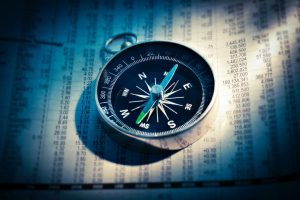The Risks and Rewards of Forex Trading: Is It Worth the Investment?
Forex trading, also known as foreign exchange trading, has gained significant popularity in recent years. With the promise of high returns and the ability to trade 24 hours a day, it has become an attractive option for many investors. However, like any investment, forex trading comes with its own set of risks and rewards. In this article, we will explore these risks and rewards to help you determine if forex trading is worth the investment.
Forex trading involves the buying and selling of currencies on the foreign exchange market. The goal is to make a profit by speculating on the fluctuations in exchange rates. Unlike other financial markets, the forex market is decentralized, meaning that it operates through a global network of banks, corporations, and individuals. This decentralized nature makes it the largest and most liquid market in the world, with daily trading volumes exceeding $6 trillion.
One of the main attractions of forex trading is the potential for high returns. Due to the high volatility in exchange rates, traders can profit from both rising and falling markets. However, it is important to note that with high returns come high risks. The forex market is notoriously volatile, and prices can change rapidly within seconds. Sudden geopolitical events, economic data releases, or even rumors can cause significant price fluctuations, leading to both profits and losses.
Another reward of forex trading is the ability to trade 24 hours a day, five days a week. Unlike stock markets that have fixed trading hours, the forex market is open around the clock. This allows traders to take advantage of global economic events and news that may impact currency prices. However, it also means that traders need to constantly monitor the market and be prepared to act quickly. This can be demanding, especially for those with other commitments or limited time to dedicate to trading.
While the potential rewards of forex trading are appealing, it is crucial to understand the risks involved. One of the biggest risks is leverage. Forex brokers offer traders the option to trade on margin, which means that they can control large positions with a relatively small amount of capital. While leverage can amplify profits, it can also magnify losses. It is not uncommon for traders to wipe out their entire account if they are not careful with their use of leverage.
Another risk is the lack of regulation in the forex market. Unlike stock markets that are overseen by regulatory bodies, the forex market is decentralized and operates in various jurisdictions. This lack of regulation means that traders are exposed to counterparty risk, where they may be trading with unscrupulous brokers or individuals. It is vital for traders to do their due diligence and choose a reputable broker that is regulated by a recognized authority.
Additionally, forex trading requires a certain level of skill and knowledge. Successful traders need to understand technical analysis, fundamental analysis, risk management, and have a disciplined trading strategy. Without these skills, traders are more likely to make impulsive decisions based on emotions, leading to losses. It is important for aspiring forex traders to invest time in education and practice before risking real money.
In conclusion, forex trading offers both risks and rewards. While the potential for high returns and the ability to trade 24 hours a day are attractive, traders must also be aware of the risks involved. Volatility, leverage, lack of regulation, and the need for skill and knowledge are all factors that need to be considered. Forex trading can be a lucrative investment opportunity for those who are willing to put in the time and effort to learn and develop their skills. However, it is not a guaranteed way to make money and should be approached with caution.






